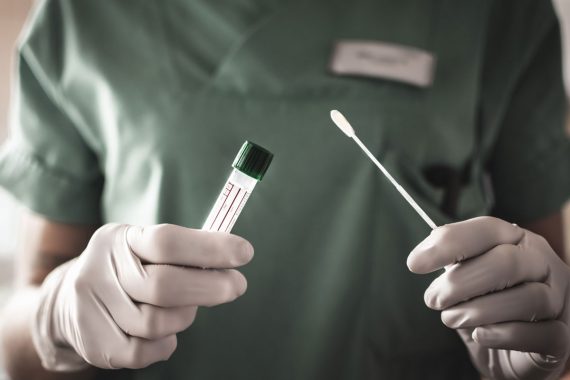Surge Covid-19 testing and a ‘bolstered’ vaccine rollout will take place in six new areas to tackle the spread of the Indian B1.617.2 variant, the health secretary has announced.
The news comes as the general vaccination campaign in England reached 34-year-olds today.
Speaking at a Downing Street briefing, Matt Hancock said the areas had been identified through analysis of wastewater and travel patterns.
The additional measures being taken in Bedford, Burnley, Hounslow, Kirklees, Leicester, and North Tyneside will include mobile and door-to-door testing, genome sequencing and expanded contact tracing, as well as pop-up vaccine sites and ‘roving’ vaccination teams to workplaces.
It follows work already being done to tackle rising rates of the variant of concern in Bolton and Blackburn.
Residents had already been urged by the council to be cautious after a rise in cases of Covid-19 after a number of cases of the Indian variant had been reported in the North West.
Blackburn with Darwen is vaccinating over-18s – under certain eligibility criteria – as part of its bid to curb the spread of the Indian Covid variant.
Meanwhile, Bolton Council has restated the lower age of eligibility is aligned to England as a whole, amid widespread reports that over-18s may become eligible there.
Greater Manchester mayor Andy Burnham had been among those calling for all over-16s in the region to get a jab to curb rising cases.
The latest data shows almost 3,000 cases of the B1.617.2 variant detected in the UK, predominantly in the North West of England, with some in London.
On Monday (17 May) GP-led vaccination sites were told by NHS England to bring forward second-dose appointments from 12 to eight weeks for all at-risk patients who have yet to be fully vaccinated.
The Joint Committee on Vaccination and Immunisation had advised that due to the rapid rise in cases of the B1.617.2 variant and notable transmission in parts of the country it was important that ‘every effort is made to promote vaccine uptake in those who remain unvaccinated in priority cohorts 1 to 9’.
‘We are determined to do all we can to ensure this new variant doesn’t put our recovery at risk,’ Mr Hancock said.
‘We are putting in place more testing – more testing sites and on vaccinations, we are making more vaccinations available to everyone who’s eligible.’
Mr Hancock said while there was no evidence to show this variant has a greater impact on severity of disease or is able to evade the vaccine, the speed of growth is of note.

















